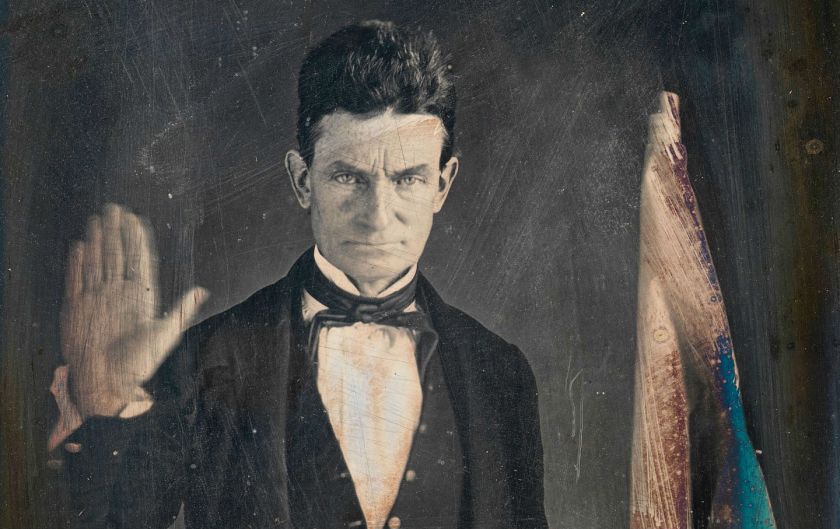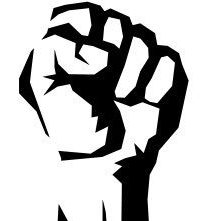Juneteenth is the oldest known celebration commemorating the ending of slavery in the United States
Happy Juneteenth my lovely brothers and sisters!

Nah but in all seriousness…
I really want to wish you all a Happy Freedom Day, as we celebrate 154 years of the official end of American Slavery.
*Sidenote* Before I jump into this history lesson about Juneteenth I want to make it clear that even after June 19th, 1865 there were still some black people here in America enslaved against their own will. Even to this day, we’re still battling a brutal system of mass incarceration and police brutality that has emerged as the new modern-day slavery. I had to bring this up because we aren’t free until we’re ALL free. Even though Juneteenth is the official day we AMERICANS celebrate the end of slavery, we must not forget about our brothers and sisters who never got a chance to experience the freedoms we enjoy today.
Related Sources:
- Blacks Were Enslaved Well into the 1960s
- The New Jim Crow: Mass Incarceration in the Age of Colorblindness
I started this piece by saying something many American’s, unfortunately, are completely ignorant of. Juneteenth is the oldest known celebration commemorating the ending of slavery in the United States.
In full transparency, I just found out what Juneteenth was about 4 years ago…
I know, I know, I know… Shame on me right? How could The Ghetto Activist of all people not know what Juneteenth was until he was 24 years old?
One thing I pride myself on is knowing my peoples’ history. By my people, I’m talking about black people’s history. Especially African American history…
So I was honestly shocked when I first heard about Juneteenth. Well, shocked and a bit ashamed.

So in hopes of sharing some knowledge, and shinning some light on a tradition that should be recognized as black people’s Independence Day… Sit back and relax as I take you on a journey to Galveston, Texas 1865…
The Untold Timeline of American History
Before we jump to 1865, I think it’s important to note that, America was founded on the kidnapping and enslavement of black people. Since this is a history lesson, below is a timeline of this somewhat forgotten history, courtesy of the Jim Crow Museum, that highlights some important dates/moments throughout American history that’s rarely taught in schools OR universities.
August 1619 |
“Twenty and odd” Africans, probably seized from a Portuguese slave ship, were carried to Jamestown, Virginia, and traded for provisions. They were classified as indentured servants.
July 9th, 1640 |
When three runaway indentured servants were captured, the General Court of Colonial Virginia gave the white servants additional years to serve while John Punch, a black man, was sentenced to servitude for life. Punch was the first African in Virginia to be enslaved for life.
1641 |
Massachusetts became the first North American colony to recognize slavery as a legal institution.
1662 |
A Virginia law passed in 1662 stated that the status of the mother determined if a black child would be enslaved. Increasingly harsh and restrictive laws were passed over the next 40 years, culminating in the Virginia Slave Codes of 1705.
1676 | In my opinion, This moment in American history is what shaped America into the America we now know and love… Wanna know how? Check out my piece: Whiteness: The Ultimate Social Control Weapon
Bacon’s Rebellion in Virginia included poor whites and blacks fighting together, with the government’s response hastening the transition to black slavery.
1705 |
The Virginia Slave Code codified the status of slaves, further limited their freedom, and defined some rights of slave owners. It included provisions stating that non-Christians brought to Virginia would be slaves, even if they converted to Christianity. It also allowed slave owners to punish slaves without fear of legal repercussions and specified the rewards for the recapture of runaway slaves.
April 1712 |
A slave revolt in New York City, during which nine white men died, led to increased restrictions on slaves
July 4th, 1776 |
The Continental Congress adopted the Declaration of Independence. Of course, slavery was still legal law of the land.
February 12th, 1793 |
Congress passed the first fugitive slave act, making it a crime to harbor an escaped slave or to interfere with the arrest of a slave.
January 1st, 1808 |
Laws banning the African slave trade went into effect in the United States and in all British colonies.
December 28th, 1816 |
The American Colonization Society was founded to transport freeborn blacks and emancipated slaves to Africa, leading to the creation of a colony that became the Republic of Liberia in 1847.
Related Sources:
- Modern-day slavery in Liberia
- Social media blocked as Liberians protest ‘corruption and creeping dictatorship
March 3rd, 1820 |
The Missouri Compromise was approved by Congress. Missouri was admitted to the Union as a slave state, Maine entered as a free state, and slavery was prohibited in western territories north of Missouri’s southern border.
March 20th, 1852 | Another large moment in American history.
The anti-slavery novel Uncle Tom’s Cabin was published and, by year’s end, 300,000 copies were sold in the United States. “Tom shows,” dramatizations based on the plot of the novel, were widely performed by traveling companies into the 20th century, spreading common stereotypes of African Americans.

March 6th, 1857 | If you’re from the St. Louis area you should know this history…
In Dred Scott v. Sandford, the United States Supreme Court ruled that blacks were not citizens of the United States and denied Congress the ability to prohibit slavery in any federal territory. I must note that Black people weren’t considered to be citizens until 11 years after this decision was made with the passing of the 14th Amendment.
1860-1861 |
Abraham Lincoln was elected President of the United States, southern states seceded, and the United States Civil War began. The 1860 census showed the black population of the United States to be 4,441,830, of which 3,953,760 were enslaved and 488,070 free. For those of us who aren’t math wizards, this means, roughly 11% of black people living in America at this time we considered “free.” The remaining 89% were enslaved.
January 1st, 1863 |
President Abraham Lincoln issued the Emancipation Proclamation, which made it clear that a Union victory in the Civil War would mean the end of slavery in the United States.
December 6th, 1865 |
The 13th Amendment to the United States Constitution was ratified, outlawing slavery.
July 9th, 1868 |
The 14th Amendment to the United States Constitution was ratified, stating; All persons born or naturalized in the United States and subject to the jurisdiction thereof, are citizens of the United States and of the State wherein they reside. No State shall make or enforce any law which shall abridge the privileges or immunities of citizens of the United States; nor shall any State deprive any person of life, liberty, or property, without due process of law; nor deny to any person within its jurisdiction the equal protection of the laws.

The Origins of Juneteenth
Now that you’re somewhat hip to things lets go back to the story of Juneteenth.
The date was June 19th, 1865. Union soldiers, led by Major General Gordon Granger, landed in Galveston, Texas with news that the Civil War had ended and that the enslaved were now free.
Note that this was two and a half years after President Lincoln’s Emancipation Proclamation – which had become official January 1, 1863, as stated in the timeline above.
If you didn’t know, the Emancipation Proclamation had little impact on much of the south but had almost NO IMPACT AT ALL on Texans due to the minimal number of Union troops to enforce the new Executive Order.
And I mean, come on bruh… Do we really believe the South followed any federal laws back then anyway? Especially laws that dealt with the lives of once enslaved human beings. Again, since folks tend to forget, we’re talking about a collection of states that went as far as committing treason against the United States… So the idea that they willingly followed federal law at this moment in time is almost too ridiculous to take seriously.
However, with the surrender of General Lee in April of 1865, and the arrival of General Granger’s regiment, the forces were finally strong enough to influence and overcome the so-called resistance.
Related Source: Reconstruction: The Second Civil War
Many historians to this day argue why it took two and a half year for Northern troops to enforce the law in Texas, and because of this disagreement among historians, several versions as to what caused the delay has been handed down throughout the years.
One story that is often told is that a messenger carrying the good news of freedom was murdered on his way to Texas.

I’m more inclined to believe the other two stories as to why this information was withheld… Those stories being;
- The news was deliberately withheld by the enslavers to maintain the labor force on the plantations.
- Federal troops actually waited for the slave owners to reap the benefits of one last cotton harvest before going to Texas to enforce the Emancipation Proclamation.

No one can say for sure which versions could be true. Even though I’d like to believe the North was tired of fighting and dying for a people they largely felt were inferior to them, and only fought the war to seize power in the North as opposed to the south but that’s just a personal opinion of mine.
One thing we know for sure is that, for some, President Lincoln’s authority over the rebellious states was most definitely in question. So for whatever the reasons, conditions might’ve been, shit in Texas remained status quo well beyond January 1st, 1863.
General Order Number 3
 One of General Granger’s first orders of business was to read to the people of Texas, General Order Number 3 which began most significantly with:
One of General Granger’s first orders of business was to read to the people of Texas, General Order Number 3 which began most significantly with:
“The people of Texas are informed that in accordance with a Proclamation from the Executive of the United States, all slaves are free. This involves an absolute equality of rights and rights of property between former masters and slaves, and the connection heretofore existing between them becomes that between employer and free laborer.”
The reactions to this profound news ranged from pure shock to immediate turn up.

While many lingered to learn of this new employer to employee relationship, many left before these offers were completely off the lips of their former ‘masters’ – attesting to the varying conditions on the plantations and the realization of freedom.
Even with nowhere to go, many felt that leaving the plantation would be their first grasp of freedom. North was a logical destination and for many, it represented true freedom, while the desire to reach family members in neighboring states drove some into Louisiana, Arkansas, and Oklahoma.
Settling into these new areas as free men and women brought on new realities and the challenges of establishing a heretofore non-existent status for black people in America.
Recounting the memories of that great day in June of 1865 and its festivities would serve as motivation as well as a release from the growing pressures encountered in their new territory.
The celebration of June 19th was coined “Juneteenth” and grew with more participation from descendants of slaves from the Galveston region. Juneteenth continued to be highly revered in Texas decades later, with many former slaves and descendants making an annual pilgrimage back to Galveston on this special day to celebrate the joyous news of being free.
Festivities and Food

Juneteenth is a time of celebration, a time of peace & love among ourselves. It’s a time for family, community healing and enjoying the presence of each other.
Juneteenth is also a time of remembrance and enlightenment.
We must not forget why there’s a Juneteenth in the first place and all the fallen heroes who spent their entire lives fighting for the equality of all mankind.
There are some traditions tied to Juneteenth that are fun and light-hearted. For instance, certain foods became popular and subsequently synonymous with Juneteenth celebrations such as strawberry soda, and barbecuing.
All in which I’ll be heavily partaking in.

But I think the one thing we all should do on this day of Black Independence is sit down and learn the true history of this country.
In other words, grab a Strawberry Fanta soda, and educate yourself on the fallen freedom fighters who not only made this day possible but made the very freedom we enjoy today possible.
Heroes & Heroines you should know, if not, get hip.





Happy Freedom Day brothers and sisters. 


Thank you for this post and Happy Juneteenth!!!
LikeLiked by 1 person
Thank you for reading and happy Juneteenth to you as well!
LikeLike